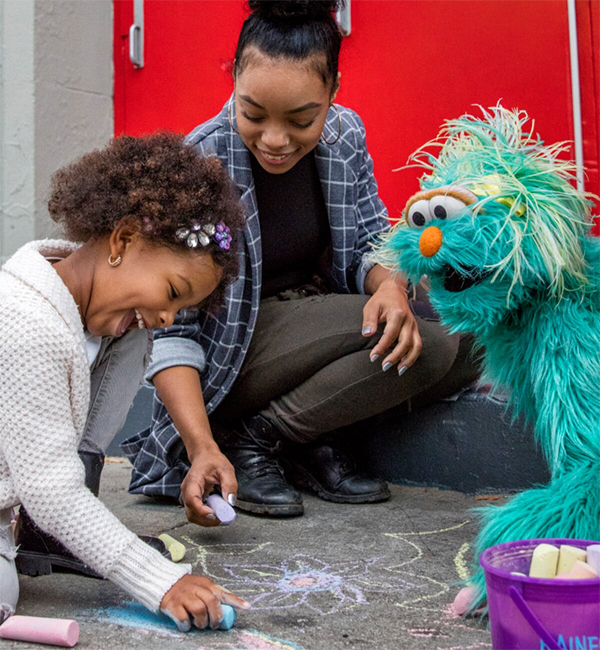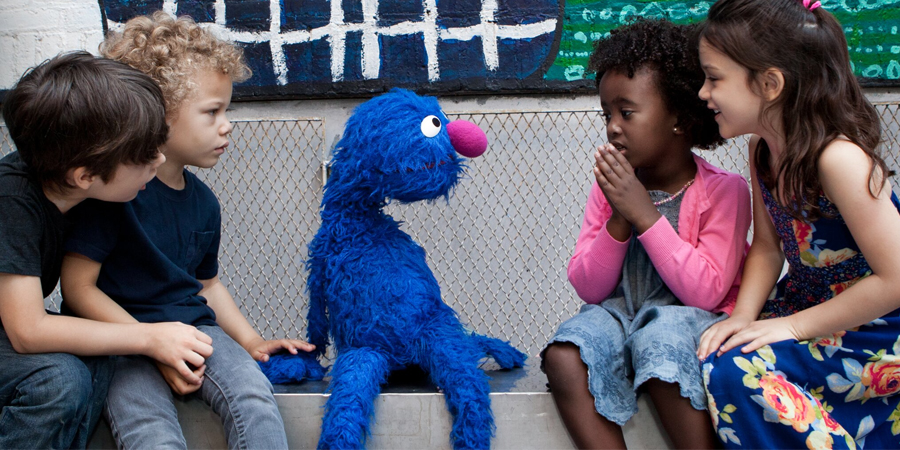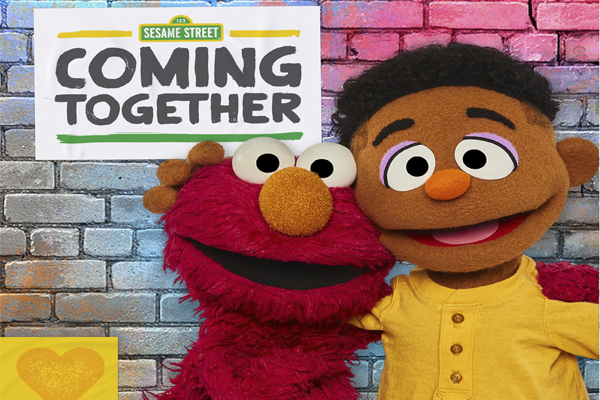Sesame Workshop, the nonprofit educational organisation behind Sesame Street, has launched new resources to help families and educators talk to their children about race and racism.
The ABCs of Racial Literacy is part of Coming Together, Sesame Workshop’s ongoing commitment to racial justice. The content aims to provide families with the tools they need to build racial literacy; to have open conversations with young children; to engage allies and advocates to become upstanders against racism; and more. Coming Together includes a racial justice educational framework, ongoing research and a rolling release of new free content.
DIVERSITY, INCLUSION, EQUITY & KINDNESS
“Sesame Workshop has always stood for diversity, inclusion, equity and kindness. As a trusted source for families, we have a responsibility to speak out for racial justice and empower families to have conversations about race and identity with their children at a young age,” stated Kay Wilson Stallings, Executive Vice President of Creative and Production, Sesame Workshop. “The work to dismantle racism begins by helping children understand what racism is and how it hurts and impacts people. Sadly, today’s announcement comes at a time of racial and social discord when many families are in need of support in talking to their children about racism. We’re proud to reaffirm our Coming Together commitment to racial justice; which will be woven into new Sesame Workshop content for years to come.”
According to a recent Children and Racism study, commissioned by Sesame Workshop to capture and elevate the voices of children aged between six and 11 and their parents, racism was top of mind for nearly half the children surveyed; with racism more prevalent in responses of Black children. The majority of parents also said they were comfortable with children learning about race and racism through media, books or school. Yet only 23% of parents reported that specific resources helped them prepare for discussions with their children. The new ABCs of Racial Literacy resources will help to fill this gap for parents and caregivers; as they embark on conversations with their children about race and racism.

Image credit: Sesame Workshop
AGE-APPROPRIATE RESOURCES ON RACISM
The new ABCs of Racial Literacy resources aim to help all families celebrate their own unique identities; while also providing age-appropriate language and strategies to answer tough questions around race and racism. In one video, Elmo wants to know why Wes’ skin is brown. Elijah (Wes’ dad) explains the concept of melanin; and why the colour of our skin is an important part of who we are. In a new music video, the Sesame Street Muppets also celebrate their own unique identities.
In another video, Rosita’s mom and her friend Sofia help Rosita cope with a racist incident in the grocery store, while also celebrating speaking Spanish. Additional resources include videos featuring real families talking about their experiences; activities for families to do together; and talking points and conversation starters for families.

Image credit: Sesame Workshop
DEVELOPING RACIAL LITERACY
“At Sesame Workshop, we look at every issue through the lens of a child. Children are not colourblind; not only do they first notice differences in race in infancy, but they also start forming their own sense of identity at a very young age,” said Dr Jeanette Betancourt, Senior Vice President, Sesame Workshop. “The ABCs of Racial Literacy is designed to foster open, age-appropriate conversations among families and support them in building racial literacy. By encouraging these much-needed conversations through Coming Together, we can help children build a positive sense of identity and value the identities of others.”
The new Coming Together: The ABCs of Racial Literacy resources are available at no cost to families at SesameWorkshop.org/ComingTogether. The resources are available in English and Spanish. and will be distributed through national and community providers as part of Sesame Street in Communities; and Sesame Workshop’s programme to support children and families, particularly those most vulnerable. Additional professional development materials for providers like social workers, educators and healthcare providers will also be available.








































